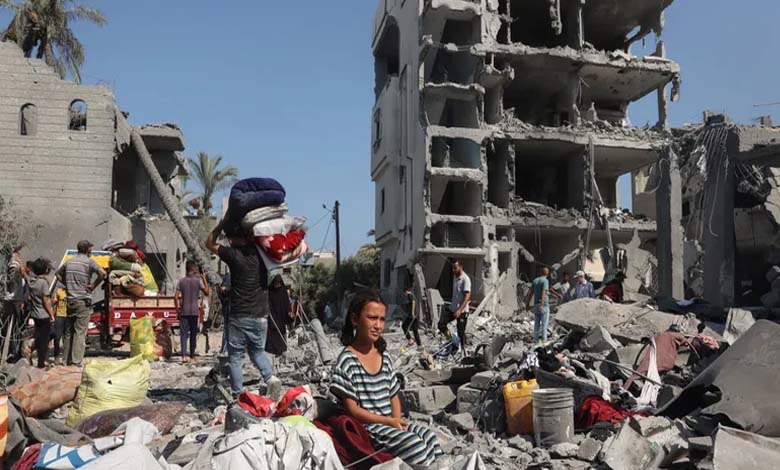Under a Tight Siege, Israel Expands Its Attack in Northern Gaza amid Reports of Hamas Activity

In a new escalation of military actions, the Israeli army announced an expansion of its ground operation in northern Gaza to include the town of Beit Lahia. This move comes amid reports that the operation aims to “eradicate elements affiliated with Hamas,” while the humanitarian suffering of residents in northern Gaza continues to grow due to the ongoing Israeli siege.
-
“Al-Mawasi Raids”: Israel Targets 3 Hamas Officials
-
“The Forest of Noise”: When Painful Memories Tell the Ruins of Gaza
Israeli Attack
The Israeli army reported on Thursday that it had broadened the scope of its military operations to encompass Beit Lahia in northern Gaza after several days of continuous bombardment. According to The Times of Israel, the Kfir Brigade, one of the largest infantry brigades in the Israeli army, began operations in the town on Wednesday. This operation was launched following intelligence suggesting Hamas activity in the area.
Humanitarian Crisis
More than 100,000 Palestinians are facing dire conditions in areas like Jabalia, Beit Lahia, and Beit Hanoun, where they are stranded without access to medical or food supplies. The Israeli siege on northern Gaza further exacerbates the situation, with the healthcare system nearing collapse and unable to meet the needs of the besieged residents.
-
UN Fears the Gaza and Lebanon Wars Spreading to Syria
-
Latest News from Gaza Now… Humanitarian Catastrophe and UN Cries in the North
The Israeli army indicated it was working to evacuate civilians from Beit Lahia, home to around 3,000 people, amid intense clashes with Hamas fighters. Yet civilians often find themselves trapped in combat zones without any safe shelter. Continuous Israeli airstrikes on Beit Lahia have led to the death of six Palestinians and injured five others, according to medical sources.
The attacks targeted a house in Beit Lahia’s northern project area, while other areas in the town experienced heavy artillery and aerial bombardment.
-
No Ceasefire in Gaza until De-escalation between Iran and Israel
-
Washington hopes to end the Gaza war following Sinwar’s death
Meanwhile, the Israeli army has continued demolishing residential buildings, particularly in areas such as Jabalia camp, Safatwi, and west Beit Lahia. Medical sources reported that five additional Palestinians were killed following an airstrike on the home of the Al-Assi family, while a sixth Palestinian was killed, and others injured, in a drone strike targeting the Al-Masri family’s apartment in Al-Manshiya district.
Significant Risks
Dr. Mohamed Al-Manji, a professor of political science, explained that Israel’s expansion of its military operations to Beit Lahia carries important strategic implications, reflecting Israel’s intent to intensify military pressure on Hamas and tighten its grip in northern Gaza.
-
Bodies devoured by stray dogs: “Tragedy” in northern Gaza described by Jabalia
-
Number of Deaths in Gaza So Far: A Shocking Toll of the War
However, Al-Manji warned that these operations could worsen the humanitarian crisis in the region to an unprecedented extent. He noted that targeting a densely populated area like Beit Lahia raises the likelihood of significant civilian casualties, especially given the current severe shortages of humanitarian resources and medical supplies.
Al-Manji pointed out that Israel’s escalation in Beit Lahia might not necessarily dismantle Hamas’s military capabilities, but could instead lead to an increase in popular support for the movement and strengthen its internal unity. This operation is seen globally as a direct attack on civilian infrastructure, which could lead to increased international pressure on Israel and fuel anti-Israel sentiment in the region.
-
The “Buried” Nightmare in Gaza: A “Tip of the Iceberg” Awaiting the End of the War
-
Disengagement from Gaza: Did Hezbollah accept in private what it publicly rejected?
He emphasized that military solutions alone will not suffice to end the conflict, stressing the need to seek balanced political solutions that minimize human losses and promote stability in the region.












